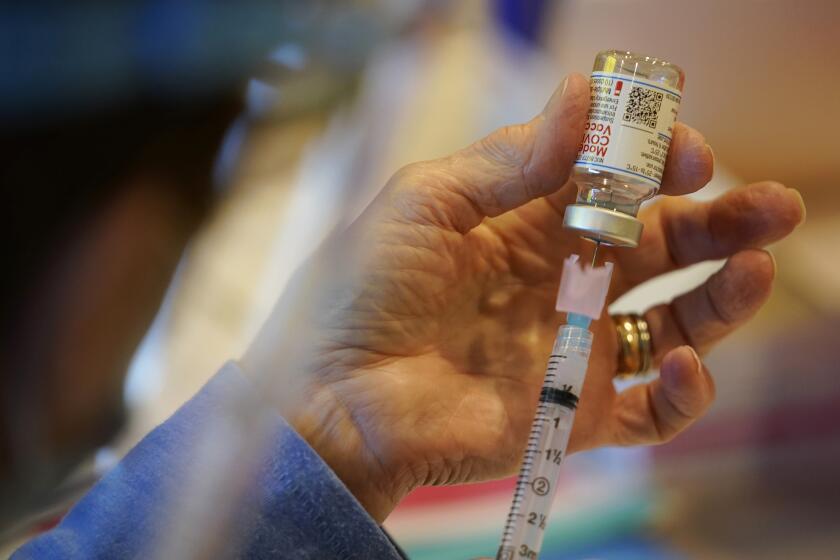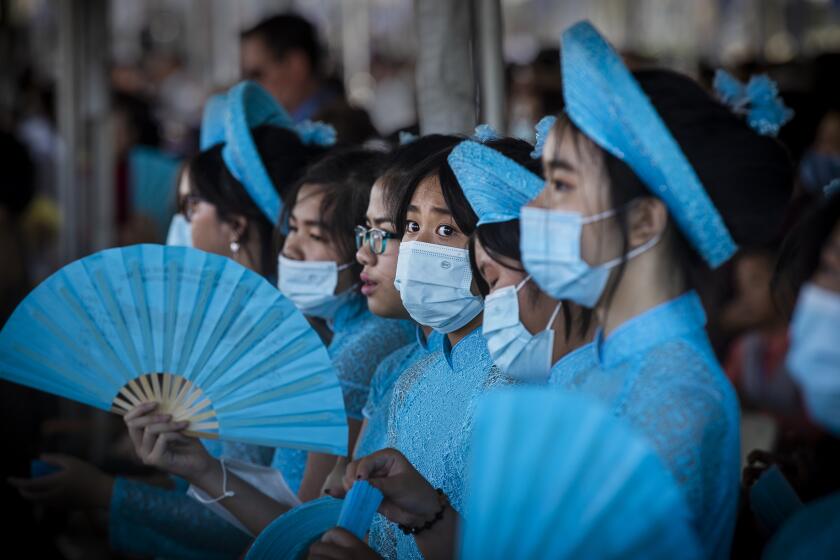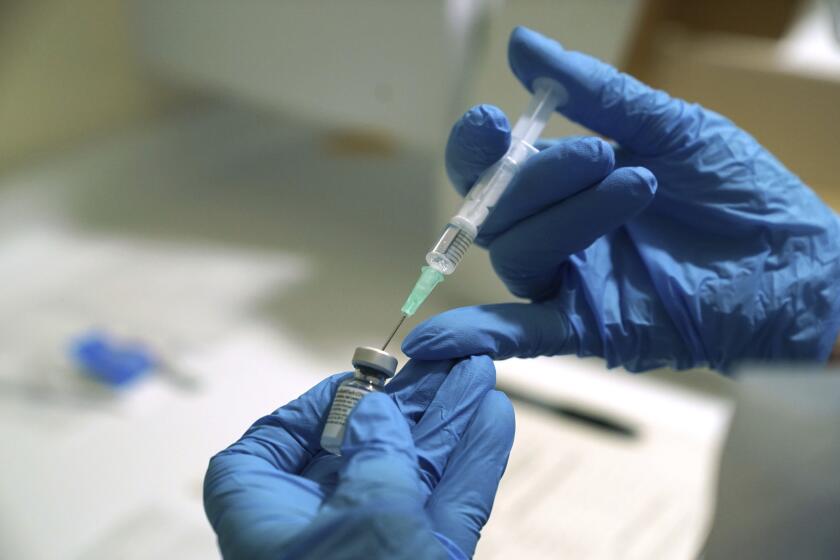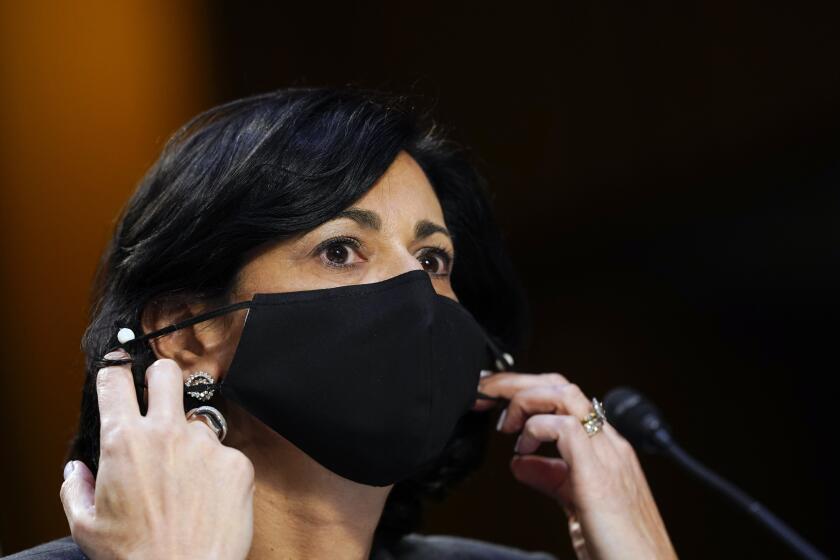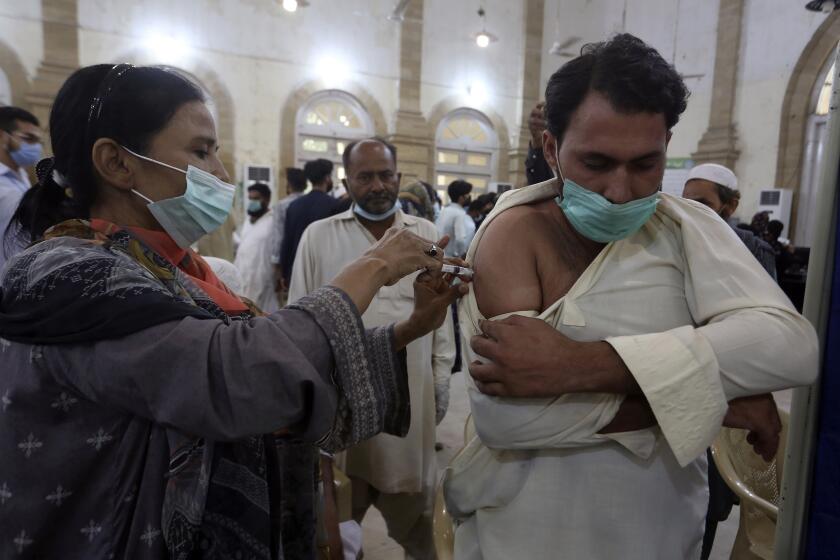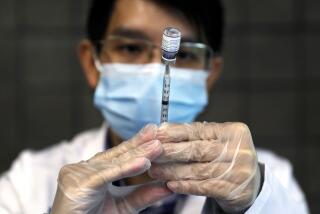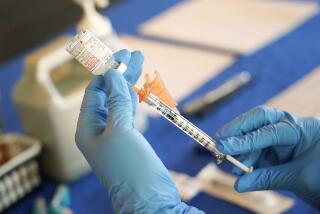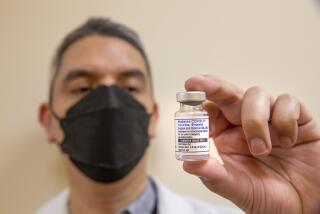Pfizer COVID-19 booster shot push sows vaccine confusion
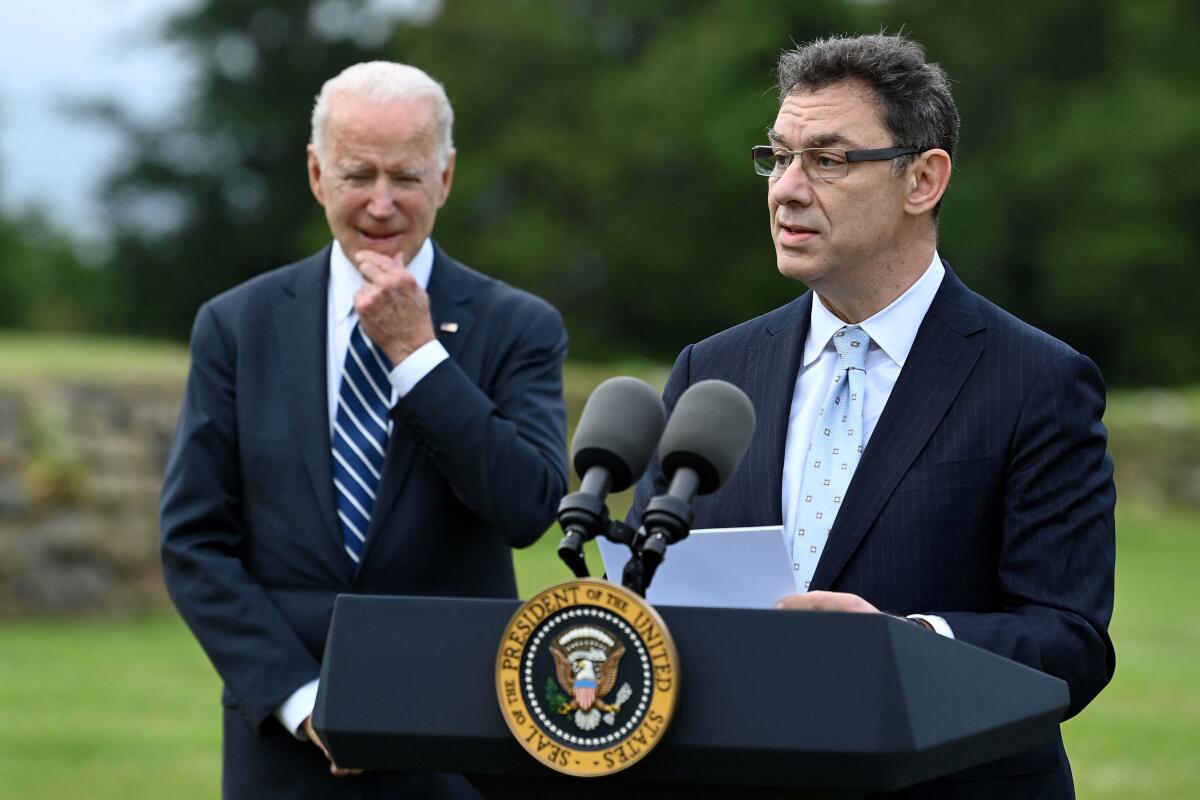
- Share via
Pfizer CEO Albert Bourla was confident in June about the ability of his company’s COVID-19 vaccine to protect against the highly contagious Delta variant.
“I feel quite comfortable that we cover it,” Bourla said.
Just weeks later, Pfizer said it would seek authorization for a booster shot after early trial results showed a third dose potentially increased protection. At the end of July, Pfizer and BioNTech announced findings that four to six months after a second dose, their vaccine’s efficacy dropped to about 84%.
Bourla was quick to promote a third dose after the discouraging news, saying he was “very, very confident” that a booster would increase immunity levels in the vaccinated.
There’s one hitch: Pfizer has not yet delivered conclusive proof to back up that confidence. The company lacks late-stage clinical trial results to confirm a booster will work against variants including Delta, which now accounts for 97% of new coronavirus infections across the U.S., according to forecasts from the Centers for Disease Control and Prevention.
Pfizer announced its global Phase 3 trial on a third dose in mid-July. That trial’s completion date is in 2022. Phase 3 results generally are required before regulatory approval.
“We are confident in this vaccine and the third dose, but you have to remember the vaccine efficacy study is still going on, so we need all the evidence to back up that,” said Jerica Pitts, Pfizer’s director of global media relations. The financial stakes are enormous: Pfizer announced in July that it expects $33.5 billion in COVID-19 vaccine revenue this year.
Meanwhile, Pfizer recently said that if a third dose couldn’t combat Delta or other variants, the drugmaker is poised to come up with a “tailor-made” vaccine within 100 days.
Lab tests and real-world experience offer reassuring evidence that COVID-19 vaccines offer a high level of protection against the Delta variant.
All of this has sown a sense of confusion about what exactly will work, and when. The pharmaceutical industry’s rush to recommend boosters for the public is “a little frustrating,” said Dr. Paul Offit, director of the Vaccine Education Center at Children’s Hospital of Philadelphia. Even if a booster is found to be safe, he said, the U.S. effort should focus on “vaccinating people who are unvaccinated.”
In any case, decisions about boosters do not rest with vaccine makers, said Offit, who advises the National Institutes of Health and the Food and Drug Administration about vaccines.
“Pharmaceutical companies aren’t public health agencies; it’s really not theirs to determine when or whether there should be booster dosing,” he said. “That is the purview of the CDC.”
Indeed, the CDC and the FDA ― the federal agencies overseeing the authorization of COVID-19 vaccines ― said in July that fully vaccinated Americans do not need a booster shot. Currently authorized vaccines ― from Pfizer, Moderna and Johnson & Johnson ― are working as they should: All three lower the risk of COVID-19 cases severe enough to hospitalize or kill a person.
If hospitalization and death rates increase among the vaccinated, then it would be time to talk about boosters, Offit said, but “we’re not there yet.”
By now, we all know that the Delta variant is about twice as transmissible as the original coronavirus. What exactly makes it so good at spreading?
The White House has added to the mixed messaging: Spokesperson Jen Psaki confirmed that the U.S. will buy an additional 200 million doses of the Pfizer-BioNTech vaccine for inoculating children under 12 and for possible boosters.
Natalie Dean, a biostatistician at Emory University in Atlanta, said the confusion is not necessarily the fault of any one institution. Rather, she said, “there is genuine scientific uncertainty about how well [existing] vaccines work against the new variant.”
Scientists are piecing together information from observational studies, outbreak investigations and analyses of antibody responses.
For many Americans, the confusion has set off a feverish search for an illicit third dose just in case it’s necessary.
“I snuck in a dose of Pfizer last week,” Angie Melton, a 50-year-old mother of four, shared on Facebook. Melton received the one-dose Johnson & Johnson shot at a mass vaccination site in April and feared the highly contagious Delta variant could infect her and then her unvaccinated 10-year-old son, who has asthma.
After consulting friends and doctors and seeing reports about mix-and-match approaches in Europe, Melton signed onto a local pharmacy site and made an appointment to get a Pfizer shot. She’s scheduled for a second shot as well.
“I’m trying to keep my family safe,” Melton said.
Mixing and matching doses of different COVID-19 vaccines was an idea that scientists dismissed out of hand. Now they’re taking it seriously.
On Thursday, the FDA said transplant recipients and other immunocompromised people can get a third dose of the Pfizer or Moderna vaccines to offer added protection against the Delta variant.
Immunocompromised patients like Sarah Keitt, who has multiple sclerosis and Crohn’s disease, expressed relief about that prospect. Keitt, a disability rights activist who lives in Connecticut, said her neurologist told her to get a booster even after she had received two doses of the Moderna vaccine. She said she was eager to get another dose but still frustrated about a lack of confidence in how much protection it would offer.
“If someone could definitely say there is a 95% chance you are protected” by a booster, Keitt said, “I would love it.”
Despite widespread media reports of “breakthrough cases,” a recent data analysis by KFF found that hospitalizations and deaths are extremely rare among the fully vaccinated ― well below 1%.
Offit points to a recent outbreak in Provincetown, Mass., in which only four of the 346 fully vaccinated people who had breakthrough infections were hospitalized with COVID-19. Two of them had underlying medical conditions and no one died.
“This vaccine still does an excellent job in the face of the Delta variant at protecting people against severe, critical disease,” he said.
The Delta variant is more formidable than previously believed, due to its ability to infect and be spread by people who are vaccinated, a CDC document says.
Yet the effectiveness of the Pfizer vaccine against variants is still under debate. This month a new preprint study by the Mayo Clinic found that the product’s effectiveness against infection dropped to 42% from January to July as the Delta variant’s prevalence markedly increased.
Pfizer and partner BioNTech announced they are developing an updated version of their vaccine to target the genomic features of the Delta variant.
However, the idea that a new formulation could work better is “mostly hypothetical at this point,” said Vaughn Cooper, a professor of microbiology and molecular genetics at the University of Pittsburgh.
Dr. Vincent Rajkumar, a hematologist at the Mayo Clinic who closely studies his patients’ immune responses and antibody levels, said using the current vaccine and testing a new version sounds reasonable.
There is one hypothesis that if breakthrough infections are due to a drop in antibody levels, boosting those levels will be enough, Rajkumar said. But the more worrisome hypothesis is that the Delta variant, or any other variant, might be less threatened by the antibodies the current vaccine generates.
“So unless you boost [antibodies] with a vaccine that is specific to Delta, it won’t work,” Rajkumar said. Testing both hypotheses is the “right thing to do in the interest of time.”
Booster moratorium, or booster momentum? WHO chief’s call to ease vaccine disparity draws mixed response
At the same time, though, the push for giving booster shots to healthy populations is premature, said Dr. Sadiya Khan, an epidemiologist and cardiologist at Northwestern University Feinberg School of Medicine. That’s because even if those already fully vaccinated do get a third dose or booster, the virus is still circulating among millions of unvaccinated people.
“The overwhelming majority of infections and hospitalizations and deaths are occurring among those who are unvaccinated,” Khan said.
“Giving up on that greater strategy of vaccinating the population is going to lead to continued surges,” she said. “The potential for harm is quite large.”
This story was produced by Kaiser Health News, one of the three major operating programs at the nonprofit Kaiser Family Foundation. KHN editor Arthur Allen contributed to this report.
